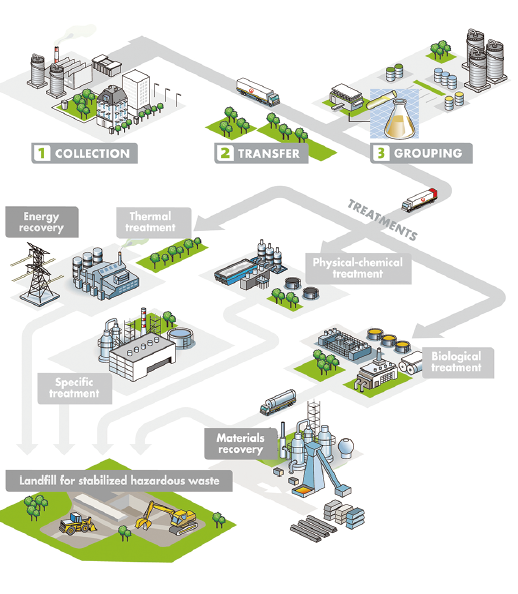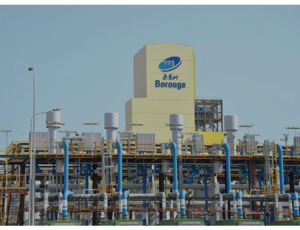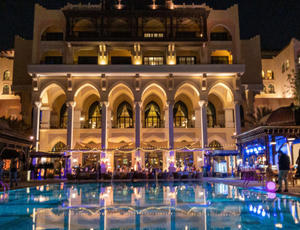HAZARDOUS WASTE
By 2024, the biggest market growth in hazardous waste is expected to come from Asia-Pacific and the Middle-East.
We help our industrial customers address their main environmental challenges in hazardous waste management by ensuring a compliant and safe management of hazardous waste with full traceability, storage or recycling, and contribute to improving environmental impact. Veolia Middle East has the capacity to handle industrial solid and liquid hazardous waste, medical waste, as well as low-radioactive waste.
Over 1,500,000 tonnes
of hazardous waste
hauled annually
Corporate Brochure
Veolia Middle East case study :
HW Plant in Jubail (A Veolia RCJC JV)
Veolia has developed a joint venture with RCJY (The Royal Commission for Jubail and Yanbu) for the construction and operation of a sustainable industrial waste to energy facility in PlasChem Park, the unique industrial park adjacent to the Sadara Chemical Complex.
Designed on a Design-Build-Own-Operate model, the plant will be operational by September 2021. It will feature an incineration capacity of 60,000 Ton per year, along with state-of-the-art technology and environmental compliance based on Veolia’s extensive international experience as a resource management specialist. Veolia is operating 29 hazardous waste incinerator lines world-wide.
Stemming from an agreement signed between Veolia and the Sadara Chemical Company (Sadara) back in December 2018, the sustainable industrial waste-to-energy facility currently in development will be located adjacent to the Sadara Chemical Complex and will receive Sadara waste streams at the opening of the plant.

Veolia uses management systems in compliance with the most stringent national legislation. This system also allows to track the waste from its collection to its final treatment, guaranteeing complete transparency for the clients in compliance with its own corporate standards.
Hazardous waste such as paints, solvents, resins, industrial steams, residual oils, heavy metals, batteries, fluorescent tubes, contaminated packages and waste from Electrical and Electronic Equipment (WEEE) needs to be collected separately for recycling and resource recovery.
Veolia ensures comprehensive hazardous waste management in every treatment process: collection, transportation, recovery, physicochemical treatment, incineration or landfill disposal. Its services aim to provide clients with the safe treatment of hazardous waste while fulfilling all reporting and transparency requirements.
Today, Veolia treats and recycles around 6 million tons of hazardous waste - over 100,000 industrial, commercial or household clients, and employs 8,000 who operate a comprehensive network of more than 140 facilities on five continents. Within the Middle East, Veolia has not been measuring his efforts to supports Governments and Industries such as Petro-chemicals, mining and metal, medical waste, to develop hazardous waste management sustainable solutions.





